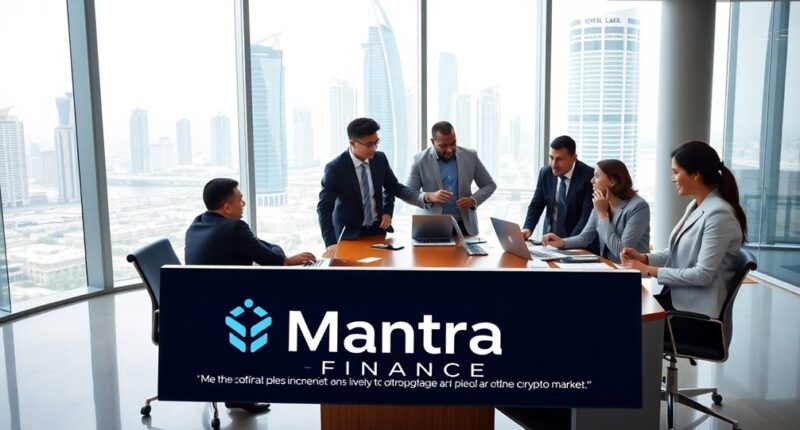Mantra Finance has recently secured a Virtual Asset Service Provider license from Dubai's VARA, marking a significant step in its expansion into the crypto market. This approval highlights the company's commitment to regulatory compliance and positions it as a credible player in the digital asset landscape. With plans to tokenize high-value assets and build strategic partnerships, you might wonder how this will impact the broader crypto ecosystem in the Middle East.

As Mantra Finance secures its footing in Dubai's burgeoning crypto market, it's clear that the company is poised for significant growth. With the recent acquisition of a Virtual Asset Service Provider (VASP) license from Dubai's Virtual Assets Regulatory Authority (VARA), Mantra is set to operate as a Virtual Asset Exchange. This license not only emphasizes the company's dedication to regulatory compliance and security but also marks a pivotal point in its journey toward global expansion. VARA license reinforces Mantra's commitment to compliance, security, and innovation.
By establishing a robust presence in the Middle East, Mantra can cater to the evolving needs of global investors seeking innovative financial solutions.
Mantra's strong foothold in the Middle East positions it to meet the demands of global investors seeking cutting-edge financial solutions.
You'll find that Mantra's strategic partnerships strengthen its position in the market. A noteworthy collaboration with DAMAC Group aims to tokenize assets worth at least $1 billion in the region. Moreover, partnerships with MAG Group and Zand Bank signal Mantra's commitment to real-world asset tokenization, which is critical for bridging traditional and decentralized finance.
These alliances highlight the company's vision and enhance its credibility in the blockchain ecosystem. By engaging with regulators like VARA and Abu Dhabi Global Market (ADGM), Mantra navigates the intricate regulatory landscape, ensuring a compliant and accessible platform for its offerings.
In a rapidly evolving financial landscape, Mantra is leading the charge in real-world asset tokenization. The company operates a purpose-built layer-one blockchain designed specifically for this purpose, bringing high-value assets such as real estate into the blockchain realm.
This innovative approach aims to create a functional and liquid ecosystem, making assets more composable for investors. Dubai's reputation as an innovation hub further supports Mantra's blockchain initiatives, allowing the company to leverage cutting-edge technology for fast, secure, and non-custodial financial services.
Market performance also speaks volumes about Mantra's potential. The MANTRA altcoin has experienced a staggering 20x price surge since March 2024, reaching a market cap of $5 billion.
Despite some volatility, the asset has retained an upward trajectory, showcasing strong speculative interest. Technical indicators, like the A/D indicator and MACD, point towards bullish momentum, while increasing open interest suggests that traders are keen on this altcoin's future.









